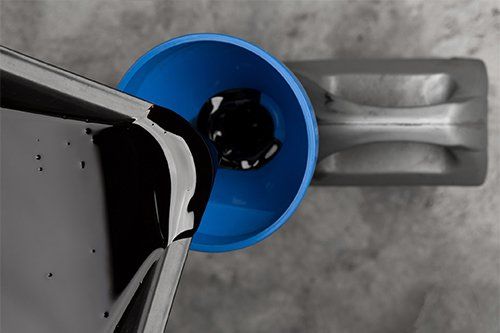How to Reduce Oil Waste

Oil has made numerous advancements in technology possible. From lighting lamps, to fueling the first automobiles, to providing heat, oil has many uses. If you use an oil furnace, you already know how efficient this type of fuel is at heating your home.
However, just like electricity or other any resource, people are encouraged to be responsible in their consumption. This means finding ways to reduce oil waste in and around the home. Follow these tips to use oil responsibly and efficiently.
Have Regular Maintenance Performed on Your Oil-Using Systems
One of the first things to do is to make sure that all of the systems in your home that utilize oil are up to date and functioning properly.
If, for example, your heating system utilizes oil, you will want to have an HVAC contractor check it out and perform general maintenance. Regular maintenance can help your system to perform more effectively and to use less oil in the process.
How often your oil-using systems will need maintenance will depend on a variety of factors. These include the age of the system, its current condition, and the frequency of use. However, a good company can help to set you and your systems up on a regular maintenance schedule that is right for you and your needs.
Turn Down Your Thermostat at Night
Sometimes, the smallest changes can end up making the biggest difference. For example, one simple thing that you can do to have a big impact is to turn your thermostat down during the night hours.
If you are covered up in blankets, you won't notice that the heat is lower than usual. Plus, you will wake up to the warming morning sun.
If you find it hard to remember to do this, invest in a thermostat that allows you to program when it powers on and off. This simple step can save you a lot of money.
Add or Improve Insulation
Another great thing you can do is to check on the current insulation status of your home.
If you don't have any insulation, you will certainly want to have it. Proper insulation can keep hot and cold air from escaping from your home. This can, in turn, reduce your oil consumption, any related costs, and any related environmental impacts.
If you already have insulation, have a professional inspect it, especially if it has been a few or several years since it was installed. Adding more insulation as needed or making small improvements to your current insulation situation can make a world of difference.
Raise Your Shades
Your window shades are another surprising thing that can impact your oil usage.
Window shades are great for controlling the temperature of your home. Thus, if you do not currently have window shades installed, consider adding them.
With high-quality shades, you can have a big effect by raising them during the day in the colder months. Do this each morning before you leave for work. This simple step will let more natural sunlight into your home, which can make your home warmer and less likely to need artificial heating, thereby lowering your oil waste and related costs.
As you can see, you can do many things to reduce oil waste in the home. By following these tips, you should see a major, positive change.
For more great tips on how to make the most of your oil and promote an environmentally friendly home, be sure to contact our knowledgeable experts at Biltmore Oil. We are full of even more tips and great advice for using oil responsibly, and we can supply you with high-quality, affordable oil.

